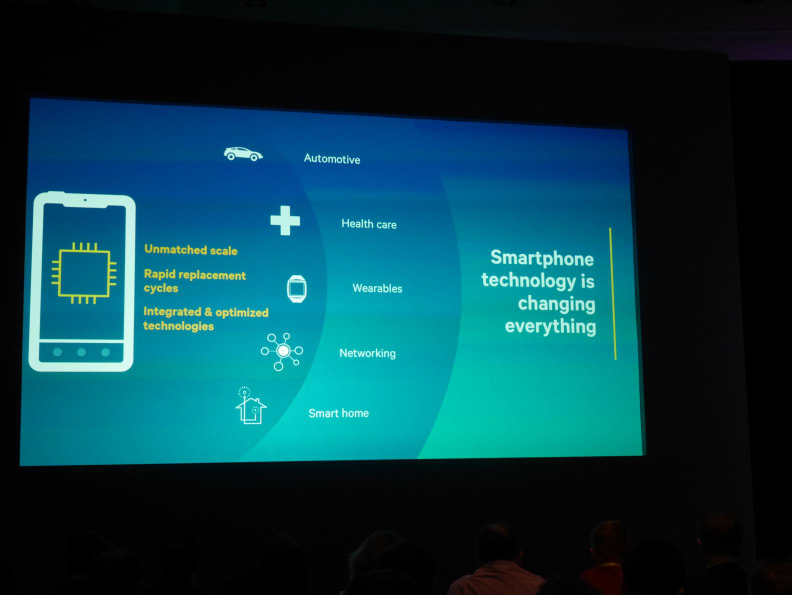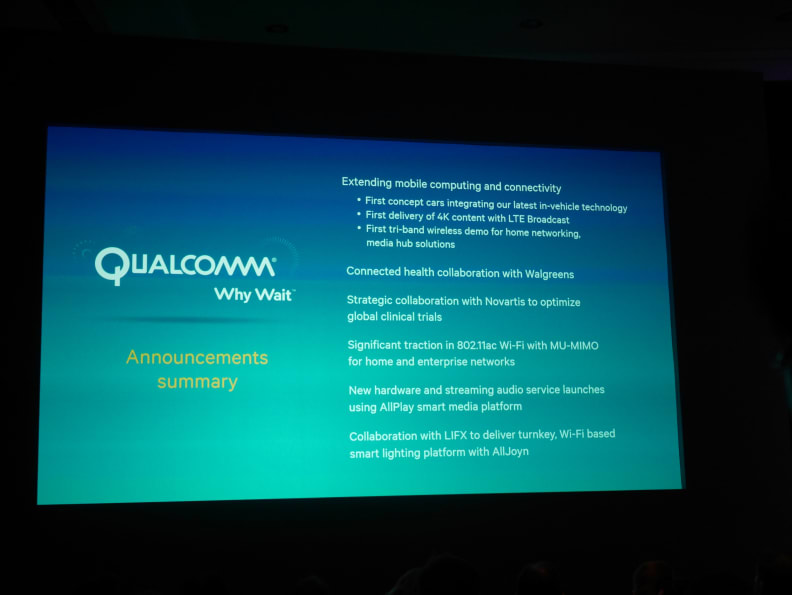Qualcomm Builds Chips for Smart Home, Wearables
As mobile tech expands, so does Qualcomm.
 Credit:
Reviewed.com / Johnny Yu
Credit:
Reviewed.com / Johnny Yu
Recommendations are independently chosen by Reviewed's editors. Purchases made through the links below may earn us and our publishing partners a commission.
Qualcomm, well-known among tech enthusiasts for its Snapdragon smartphone chip, announced during CES 2015 that it intends to build chips for the new products that will inevitably result from the expansion of mobile tech.
In a press conference, President Derek Aberle stressed the mounting importance of mobile tech and its impact on adjacent industries. After pointing out that the Snapdragon 810 chip is in LG’s recently-unveiled G Flex 2, Aberle set his sights on areas where he sees mobile’s influence growing: automotive, health care, wearables, and smart home.

Mobile is expanding, and Qualcomm is expanding with it.
In the automotive category, Qualcomm intends to build chips for cluster and infotainment systems. Aberle noted that two concept cars revealed at CES, the 2015 Cadillac XTS and the 2015 Maserati Quattroporte GTS, already have Snapdragon in their dashboards.
When it comes to health care, Qualcomm is partnering with Walgreens and Novartis. For the former, Qualcomm is working to provide connectivity for patients with medical devices. For the latter, it is optimizing clinical trials to help the drug developer cut costs and test more efficiently.

Qualcomm has its hands in many new areas.
Wearables only got a brief mention, but attendees were encouraged to visit Qualcomm’s booth for its wearables showcase when the show floor opens. However, Aberle cited Qualcomm’s presence in over 15 wearable products. These include kid trackers, fitness trackers, smart watches, and wearable cameras.
Finally, in the area of smart homes, Qualcomm is partnering with LIFX to build chips for smart light bulbs. The two companies are collaborating to build Wi-Fi-enabled smart bulbs using the AllJoyn protocol, which theoretically expands the number of devices that can control these bulbs.

